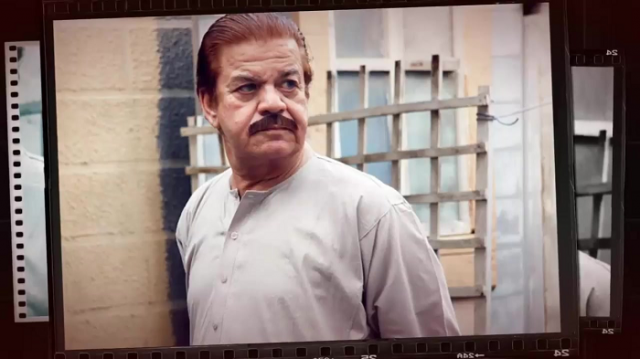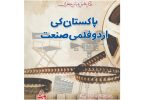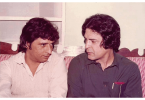By: Omair Alavi Qazi Wajid was one of the most versatile actors of his generation and his sudden death has created a vacuum that might never be filled. Born in 1944 in the Indian city of Gwalior, the veteran actor migrated to Pakistan after its creation with his parents. Qazi Wajid began his career in the…
SAMAA | Omair Alavi – Posted: Feb 12, 2018 |
By: Omair Alavi
Qazi Wajid was one of the most versatile actors of his generation and his sudden death has created a vacuum that might never be filled. Born in 1944 in the Indian city of Gwalior, the veteran actor migrated to Pakistan after its creation with his parents.
Qazi Wajid began his career in the early 50s as a radio artiste and stayed loyal to the media until his death. It was this training at radio that made him sound different whenever he acted on stage, films or TV where sound plays an important part. For those who grew up in the 70s and the 80s, he was a star since his voice featured on the Cassette Kahani series.
Be it films, theatre or TV, Qazi Wajid was always prepared to give his best. He didn’t go for heroic roles as he considered them one-dimensional; in fact, he preferred roles with shades of grey or that gave him margin to perform over playing the righteous hero. That may be one of the reasons why he played Shakeel’s Father-in-Law in Ankahi or the villainous father in Hawwa Ki Beti.
He began his acting career on screen with Bedaari and stood out as the kid who stammers while talking – from there onwards, there was no stopping him because he garnered recognition and used his Radio Experience to establish himself as a theatre actor. TV came early for him and he didn’t let it go because he knew that the future was on TV and people would become famous if they worked hard and gave their best.
In the initial days of TV, Qazi Wajid shared the record of most appearances with Qavi Khan – he from Karachi, Qavi from Lahore. He was part of nearly all the great productions from Karachi including Zer Zabar Pesh, KIran Kahani, Khuda Ki Basti, Ankahi, Tanhayyan, Dhoop Kinaray etc and was at ease both at PTV and at Private Productions. In 1992, he played the editor of Ayaz Naik’s character in Chand Girhan and later stayed loyal to Private Plays since they not only paid better but also gave him the financial stability an actor desire.
For an actor who had been around for over 60 years, Qazi Wajid was always willing to learn from anyone who had new things to offer. That’s one of the reasons he stayed humble all his life and even when drama offers stopped coming, he didn’t say much. However, for an actor of his calibre, the drought was short-lived and he was back on top of his game as soon as the Drama Industry picked up with good content.
His most plays include the one and only Taleem e Baalighan, Mirza Ghalib Bandar Road Par, Hawwa Ki Beti, Pal Do Pal and Sang e Mar Mar. He also stayed loyal to his theatre fans and in what can be termed as his final act, he was part of the Mushaira that Anwar Maqsood performed in Saudi Arabia’s city Riyadh a few weeks back. In fact, he had been performing Taleem e Baalighan all over the world and had taken over the role of the Master Ji after Mehmood Ali’s death.
Qazi Wajid was one of the few actors who felt comfortable in any kind of a role – from playing the father-in-law to an older Shakeel to playing the cool dad in Shab e Aarzoo Ka Aalam – he was always there for newcomers and seniors as well. Be it Fazila Kazi in Burger 93 or Armeena Khan in Shab e Aarzoo Ka Aalam, Qazi sahib played the father we all wanted to have. With his death, Pakistani entertainment industry has lost an icon who will be remembered for his iconic work and style.







